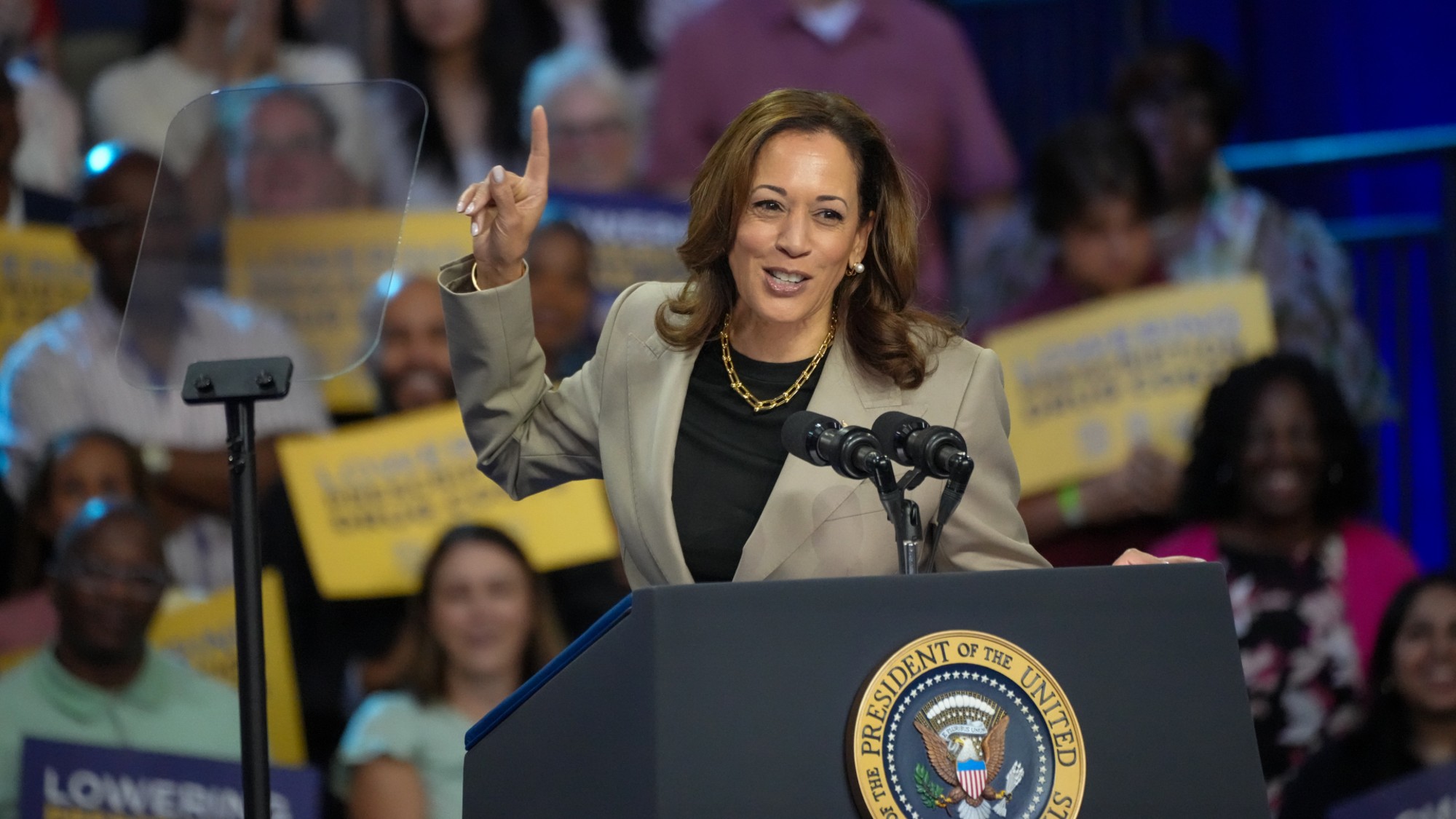Does Kamala Harris have bigger plans than tweaks to the Affordable Care Act?
From radical to reticent reformer on health care


A free daily email with the biggest news stories of the day – and the best features from TheWeek.com
You are now subscribed
Your newsletter sign-up was successful
Since Democrats hotly debated the issue in their 2020 presidential primary debates, health care has faded as an urgent national concern. That's somewhat surprising given that dissatisfaction with the U.S. health care system is as high as it has been since 2016, according to Gallup polling. Vice president and Democratic presidential nominee Kamala Harris certainly has some ideas about how to improve that system, but the party's appetite for big structural changes like implementing Medicare For All seems to have all but disappeared.
What led to Harris' shifts on health care policy?
As a first-term senator from California, Harris launched a presidential bid in 2019 that she ended before any states had voted in the Democratic primary contests. Along with 16 other Senate Democrats, she had co-sponsored Medicare For All legislation in 2017 that would have constituted a far-reaching overhaul of how the U.S. health care system operates. In one early debate, a moderator asked which candidates would support abolishing private insurance, and Harris raised her hand. In subsequent interviews and debates, however, she clarified her position as supporting Medicare For All with the ability to supplement with private insurance.
As Joe Biden's running mate in 2020, however, she endorsed a more limited idea: a "public option" through which the government would offer its own insurance plan for individuals but that would leave the structure of the Affordable Care Act and America's largely employer-based health care system intact. The Biden administration, however, never seriously pursued the idea. Today, Harris won't commit to her 2019 version of Medicare For All nor to a public option. The economic plan released by the campaign in September says only that, as president, Harris would use tax credits to bring down premiums on plans offered through the Affordable Care Act. The Harris campaign claims that these shifts are the result of hard-won experience. Harris "certainly learned over the 3½ years here, the importance of incremental progress," said domestic policy adviser Kristine Lucius to The Washington Post.
The Week
Escape your echo chamber. Get the facts behind the news, plus analysis from multiple perspectives.

Sign up for The Week's Free Newsletters
From our morning news briefing to a weekly Good News Newsletter, get the best of The Week delivered directly to your inbox.
From our morning news briefing to a weekly Good News Newsletter, get the best of The Week delivered directly to your inbox.
Does Harris have any other proposals for health care?
About 8% of Americans owe medical debt, a 2024 analysis by the Peterson Center on Healthcare and the Kaiser Family Foundation found, with poorer and sicker individuals holding a higher share of it. About 3 million people owe more than $10,000. Harris will "work with states to cancel medical debt for even more Americans," said the campaign's economic plan, which did not include specific proposals for how she would go about doing so.
Harris also promises to cap out-of-pocket spending on insulin at $35 a month and prescription drugs at $2,000 a year for all Americans, building on a Biden administration policy that ushered in these changes for individuals on Medicare. As for Medicare itself, Harris promises to defend it and argues that her tax proposals, which would include new levies on wealthy Americans and their investments, would help fortify Medicare. The Harris campaign has not released any policy proposals that include details about how it would use the additional tax revenue to strengthen the program.
In 2020, the Biden campaign promised to lower the Medicare eligibility age to 60 as part of a gradual expansion of Medicare's benefits to all Americans. That idea did not make it into any legislation passed by the Democratically controlled House or Senate when the chambers were both controlled by Democrats from 2021 to 2023. The Harris campaign has not publicly commented on whether the vice president still supports lowering the Medicare eligibility age. But the campaign did release a major new proposal on October 8, calling for Medicare to cover long-term care for people at home. The plan would cover some of the costs of home health aides and is designed both to keep seniors living in their own homes and to defray the often overwhelming costs for caregivers.
Given the difficulty that Democrats will have defending their razor-thin Senate majority even if Harris wins, the campaign may be reluctant to commit to more specific proposals until the dust clears from the election.
A free daily email with the biggest news stories of the day – and the best features from TheWeek.com
David Faris is a professor of political science at Roosevelt University and the author of "It's Time to Fight Dirty: How Democrats Can Build a Lasting Majority in American Politics." He's a frequent contributor to Newsweek and Slate, and his work has appeared in The Washington Post, The New Republic and The Nation, among others.
-
 6 of the world’s most accessible destinations
6 of the world’s most accessible destinationsThe Week Recommends Experience all of Berlin, Singapore and Sydney
-
 How the FCC’s ‘equal time’ rule works
How the FCC’s ‘equal time’ rule worksIn the Spotlight The law is at the heart of the Colbert-CBS conflict
-
 What is the endgame in the DHS shutdown?
What is the endgame in the DHS shutdown?Today’s Big Question Democrats want to rein in ICE’s immigration crackdown
